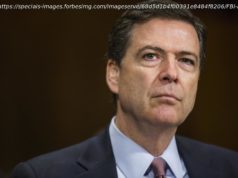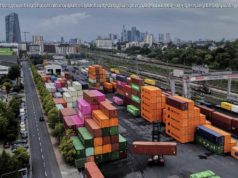The death toll from the Camp fire in the Northern California town of Paradise jumped to 42 Monday, making the deadliest fire in state history, as President
The death toll from the Camp fire in the Northern California town of Paradise jumped to 42 Monday, making the deadliest fire in state history, as President Donald Trump approved a major disaster declaration for the state.
Officials said they recovered the remains of 13 additional victims Monday as teams continued search the burned-out remains of thousands of lost homes.
Trump’s move came just two days after he criticized California, erroneously claiming that poor forest management caused the fires of the last week and threatened to cut off funding. His comments were met with widespread outrage from both California officials and many firefighters.
But on Monday, Trump struck a more conciliatory note.
“I just approved an expedited request for a Major Disaster Declaration for the State of California,” he wrote on Twitter. “Wanted to respond quickly in order to alleviate some of the incredible suffering going on. I am with you all the way. God Bless all of the victims and families affected.”
Gov. Jerry Brown sought the declaration Sunday, as fires raged both in Butte County and in Southern California.
The Woolsey fire, which broke out Thursday in Ventura County and spread to Malibu, has obliterated roughly 370 homes and businesses.
However, California Department of Forestry and Fire Protection officials said about 15 percent of the burn area has been surveyed for damage, so the number of structures damaged in the inferno probably will increase. About 57,000 structures are still threatened, and the blaze has already killed at least two people, authorities said.
A couple whose charred bodies were found in a vehicle in Malibu on Friday probably died trying to escape the flames, Los Angeles County Sheriff’s Department Sgt. Guillermo Morales said.
Investigators are still trying to identify the car’s driver and passenger, both of whom were burned beyond recognition, Morales said. Investigators don’t think the two lived at the address. The home’s residents “have been accounted for,” Morales said.
“This driveway looks like a small road. It’s not like a normal driveway, and the whole landscape around there is burned to a crisp. We think they were probably overcome by the flames,” Morales said.
On Monday, the remnants of two cars were visible about a third of a mile up a long, curving driveway, beyond an electronic gate on Mulholland Highway that had been left open. Scattered across the pavement were a few fragments: screws, broken glass, pools of melted metal. A softened windshield was draped over the cliffside.
A lull in winds over the weekend allowed firefighters to make some headway with the blaze, boosting containment to 20 percent, Cal Fire Division Chief Chris Anthony said.
However, Santa Ana winds that arrived Monday morning and are expected to gain strength through Tuesday could cause the fire to spread erratically.
Northeast winds are expected to blow 20 to 30 mph, with gusts up to 55 mph in Los Angeles, according to the National Weather Service. A red-flag warning _ signifying a potent mix of heat, dry air and winds that could explode a small fire into a deadly conflagration _ has been issued for the region.
Anthony said the main push for firefighters through the day will be preventing burning embers from jumping outside the containment lines, and keeping the Woolsey fire from spreading to Topanga Canyon.
“We didn’t see any spread of fire outside the containment lines on Sunday, but as we’ve clearly seen over the last couple of days, it only takes one ember and one new spark to see rapid rates of fire spread,” he said.
As fire officials saw Friday, windy conditions can be perilous for communities in the path of a wildfire. Strong winds accelerated the Woolsey fire’s growth as it burned into Malibu, forcing residents to flee quickly as flames engulfed homes, leaving behind only wreckage and a few charred memories.
Nearby, the long, twisting roadways of the city felt like a moonscape. The streets through the Santa Monica Mountains, damaged in places, were framed by scorched speed limit signs and drooping power lines. The fire had burned unevenly, leaving some swaths of land barren and gray. In other areas, unscathed trees and vineyards swam into view in vivid color. Solar panels glinted from scorched hillsides.
The silence was punctuated by the beep-beep-beep of utility trucks, the whir of helicopters dropping water and the roar of the wind blowing ash and dust across the hills. The shoulder of Mulholland Highway was filled with trash, burnt palm fronds and the remnants of people’s homes: a New Yorker subscription card, a page from a 1977 yearbook, a half-burned ticket for going 101 mph in a 60-mph zone.
Along a path of wood chips that crumbled when touched, a white yurt stood intact and pristine, surveying a valley of scorched earth and twisted trees. Stone letters on a ridge nearby spelled out: “LOVE.”
Investigators are still trying to determine what sparked the Woolsey fire. Southern California Edison told state regulators last week that there was an outage tied to its Chatsworth substation two minutes before the fire was reported near Simi Valley, but authorities have not connected the incident to the blaze.






